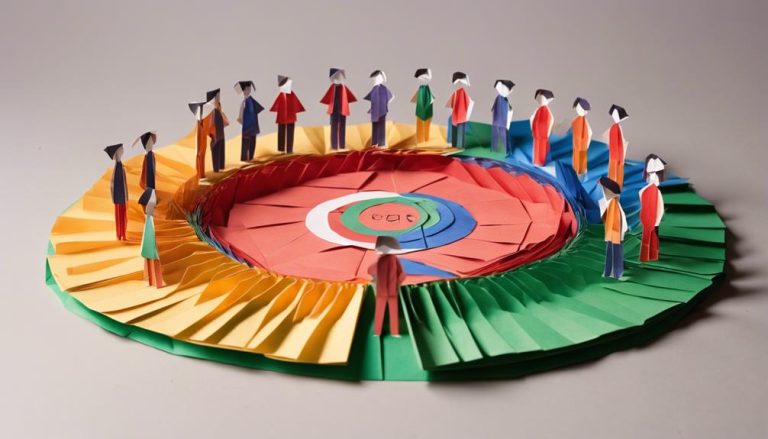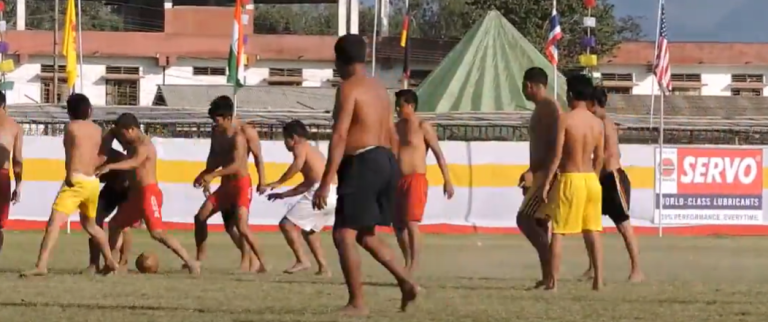General Rules of Jianzi Sport
Jianzi, a game of grace and agility, has garnered a global following for its unique blend of athleticism and finesse. But before you take to the field, understanding the general rules that govern this ancient sport is crucial. From the specific equipment requirements to the intricacies of gameplay, mastering these regulations will set you on the path to success in the world of jianzi. So, let's kick off this exploration of the fundamental rules that shape the essence of jianzi sport.
Equipment Requirements
When playing Jianzi, you only need a simple set of equipment to get started. The first thing to mull over is the type of shoes you wear. It's best to use lightweight and flexible shoes that provide good grip on the ground, helping you move swiftly and maintain balance during the game. Sneakers or athletic shoes are ideal for playing Jianzi as they offer the necessary support and mobility required for this dynamic sport.
Another essential piece of equipment is the Jianzi net. The height of the net is pivotal in determining the level of difficulty and intensity of the game. Typically, the net should be set at a height that allows for a challenging yet enjoyable experience for all players. A standard net height for Jianzi is around 5 to 6 feet above the ground. This height provides a good balance between making the game competitive while still being inclusive of players with varying skill levels.
Playing Field Dimensions
For an authentic Jianzi experience, understanding the specific dimensions of the playing field is important to a fair and enjoyable game for all participants. When setting up the Jianzi court, remember these key points for a smooth and exciting game:
- Court Size: The standard Jianzi court is rectangular, measuring approximately 6.1 meters in width and 11.9 meters in length. Keeping within these dimensions guarantees that the game is challenging yet manageable for all players involved.
- Net Height: The Jianzi net should be positioned at a height of around 1.55 meters above the ground. This height offers a good balance between accessibility for players of different skill levels and maintaining the challenge of keeping the shuttlecock in the air.
- Boundary Lines: Clearly mark the boundaries of the court to avoid any disputes during the game. The sidelines should be 6.1 meters long, while the end lines should measure 11.9 meters each.
- Footwear Options and Weather Considerations: Choose appropriate footwear that provides a good grip on the court surface to prevent slipping. Additionally, consider the weather conditions when playing Jianzi outdoors; adjust your attire and footwear accordingly to guarantee comfort and safety during the game.
Adhering to these dimensions and considerations will enhance the overall Jianzi experience, allowing all participants to fully enjoy the game.
Scoring System
To keep track of points in Jianzi, players utilize a straightforward scoring system that adds excitement to the game. Scoring techniques in Jianzi involve kicking the shuttlecock over the net and into the opposing team's side within the designated boundaries without the other team being able to return it. Each successful kick that lands within the lines earns a point for the kicking team. Strategy plays a vital role in scoring, as players need to focus on placing their kicks strategically to make it difficult for the opposing team to return the shuttlecock effectively.
Player positioning and teamwork are essential aspects of maximizing scoring opportunities in Jianzi. By positioning themselves strategically on the court, players can create openings to kick the shuttlecock past the opposing team's defense. Effective teamwork involves players communicating with each other to anticipate movements and plan coordinated attacks. Working together seamlessly increases the chances of scoring points and outmaneuvering the opposing team.
Understanding the scoring system, mastering scoring techniques, and implementing strategic plays based on player positioning and teamwork are key elements to success in Jianzi. By honing these skills, players can elevate their game and enjoy the thrill of scoring points while engaging in this dynamic and exhilarating sport.
Gameplay Rules
Curious about how to play Jianzi like a pro? Mastering the gameplay rules is essential for excelling in this dynamic sport. To elevate your performance, here are some essential insights to enhance your technique and strategy:
- Technique Tips: Focus on your footwork to make precise and powerful kicks. Practice different kicking styles to adapt to diverse game situations. Strengthen your coordination and balance for better control over the shuttlecock.
- Skill Development: Work on improving your juggling skills to maintain longer rallies. Enhance your timing and accuracy when hitting the shuttlecock. Train to increase your endurance and agility for sustained gameplay.
- Strategy Tactics: Develop a communication system with your teammates to coordinate movements effectively. Understand each player's strengths to optimize team performance. Strategize plays that capitalize on your team's skills and exploit opponents' weaknesses.
- Team Dynamics: Foster a sense of unity and trust among team members to enhance collaboration. Encourage mutual support and constructive feedback to grow together. Celebrate successes and learn from failures as a team to strengthen bonds and improve overall gameplay.
Penalties and Fouls
Building on your understanding of Jianzi gameplay rules, it is important to now address penalties and fouls that can impact the flow and fairness of the game. Player behavior plays a vital role in the dynamics of Jianzi, and certain actions can result in consequences that affect the outcome of the match. Referees hold the responsibility of ensuring fair play through the enforcement of penalties when rules are violated.
When it comes to player behavior, there are specific actions that can lead to penalties. These penalties are designed to maintain the integrity of the game and discourage actions that could give one team an unfair advantage. Referee discretion is key in determining the appropriate penalty for each situation based on the severity of the offense.
The table below outlines some common fouls and their consequences in Jianzi:
| Foul | Consequence |
|---|---|
| Physical contact | Direct free kick to opponents |
| Dangerous play | Indirect free kick to opponents |
| Unsportsmanlike conduct | Yellow card or warning |
Frequently Asked Questions
What Are the Health Benefits of Playing Jianzi Sport?
Enhancing your physical and mental well-being, playing jianzi offers improved coordination and mental focus. This ancient sport not only keeps you active but also sharpens your mind, providing a holistic health boost.
Are There Any Professional Jianzi Leagues or Competitions?
Yes, there are professional jianzi leagues and global competitions that offer sponsorship opportunities and athlete endorsements. Engage in the excitement of competitive play and watch skilled players showcase their talent on an international stage.
How Long Has Jianzi Been Played as a Sport?
Jianzi, with origins dating back more than 2,000 years, has a rich history steeped in tradition. Imagine, generations passing down this artful sport. It's fascinating how this ancient game has stood the test of time.
Are There Any Cultural or Historical Significance to Jianzi Sport?
Incorporating keywords like cultural significance and historical roots, jianzi sport holds immense value. It symbolizes ancient traditions, fosters community bonds, and showcases athleticism. Its historical roots date back centuries, embodying cultural pride and resilience.
Can Jianzi Be Played Indoors or Is It Strictly an Outdoor Sport?
You can definitely play indoor jianzi, which offers benefits like practicing in any weather. Techniques for indoor play include adjusting your power and height to avoid hitting the ceiling, enhancing your skills.






